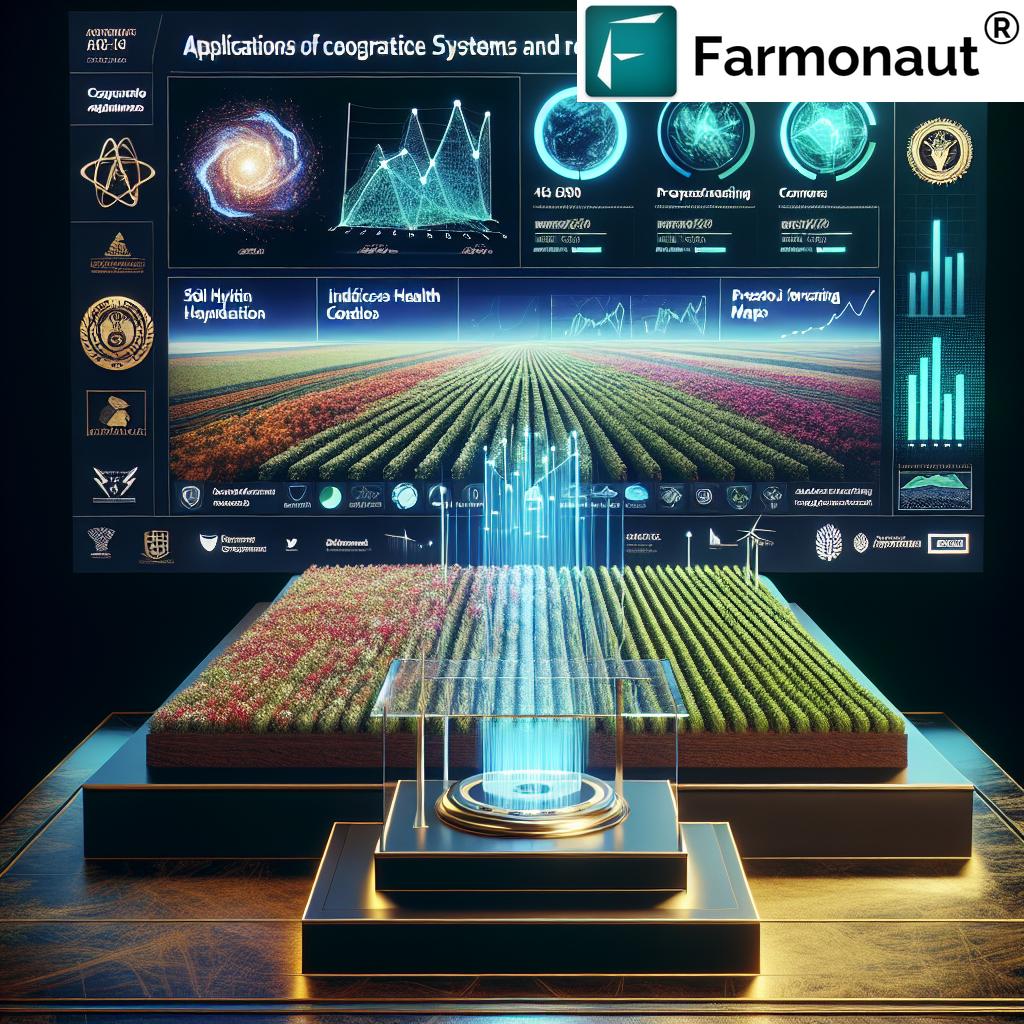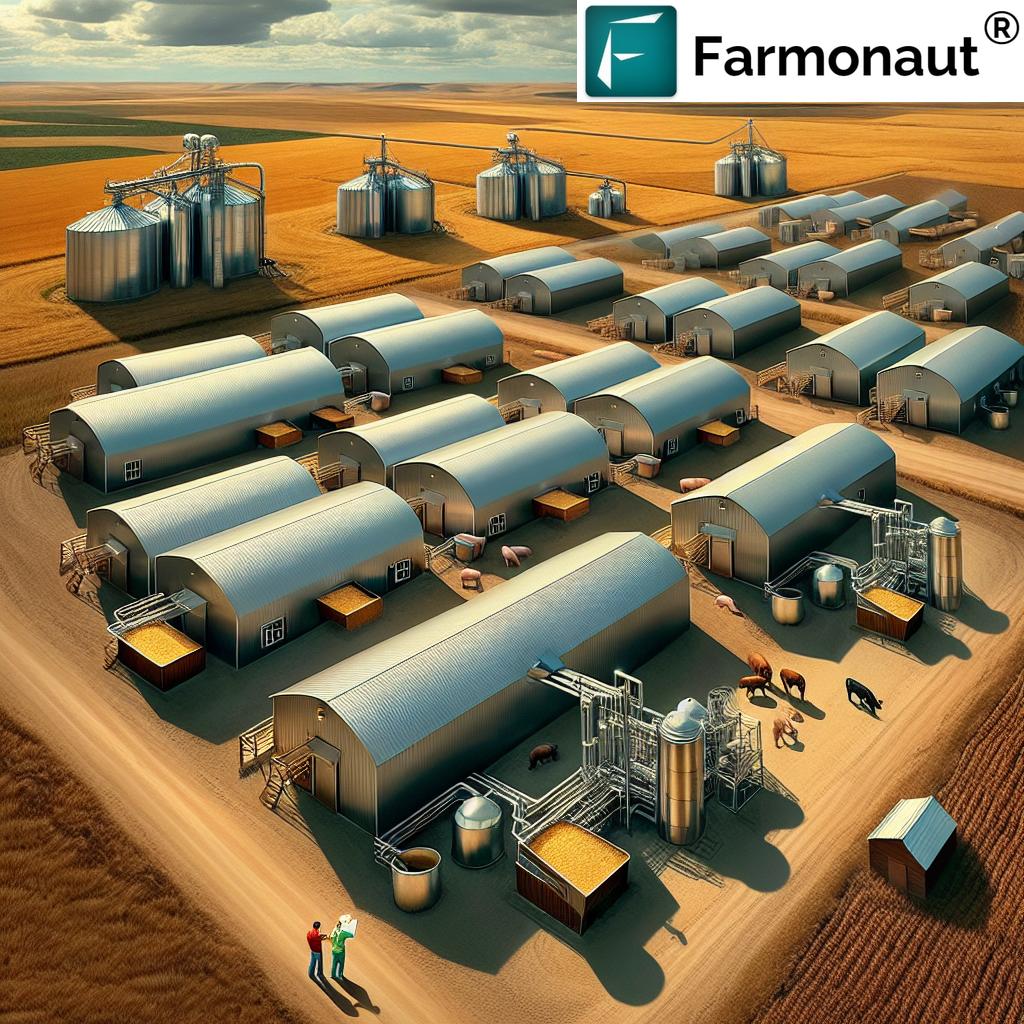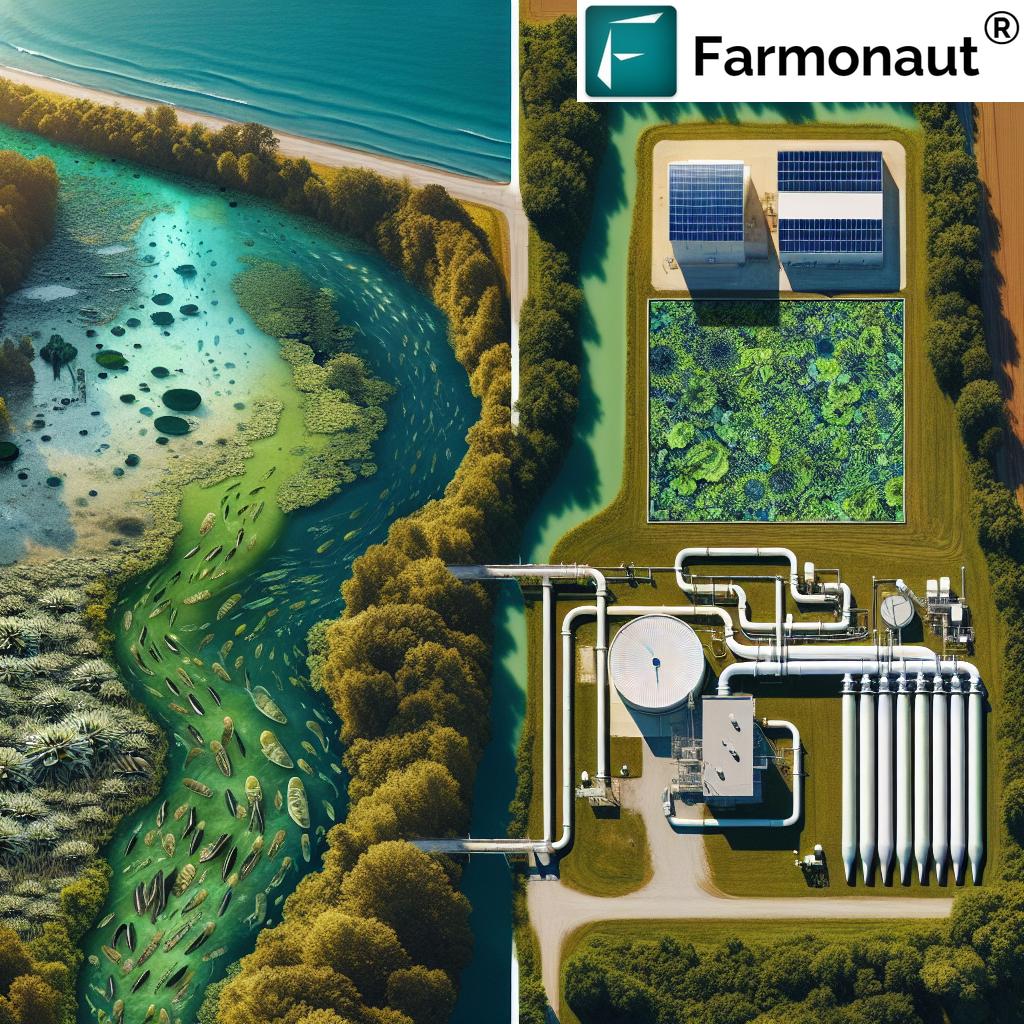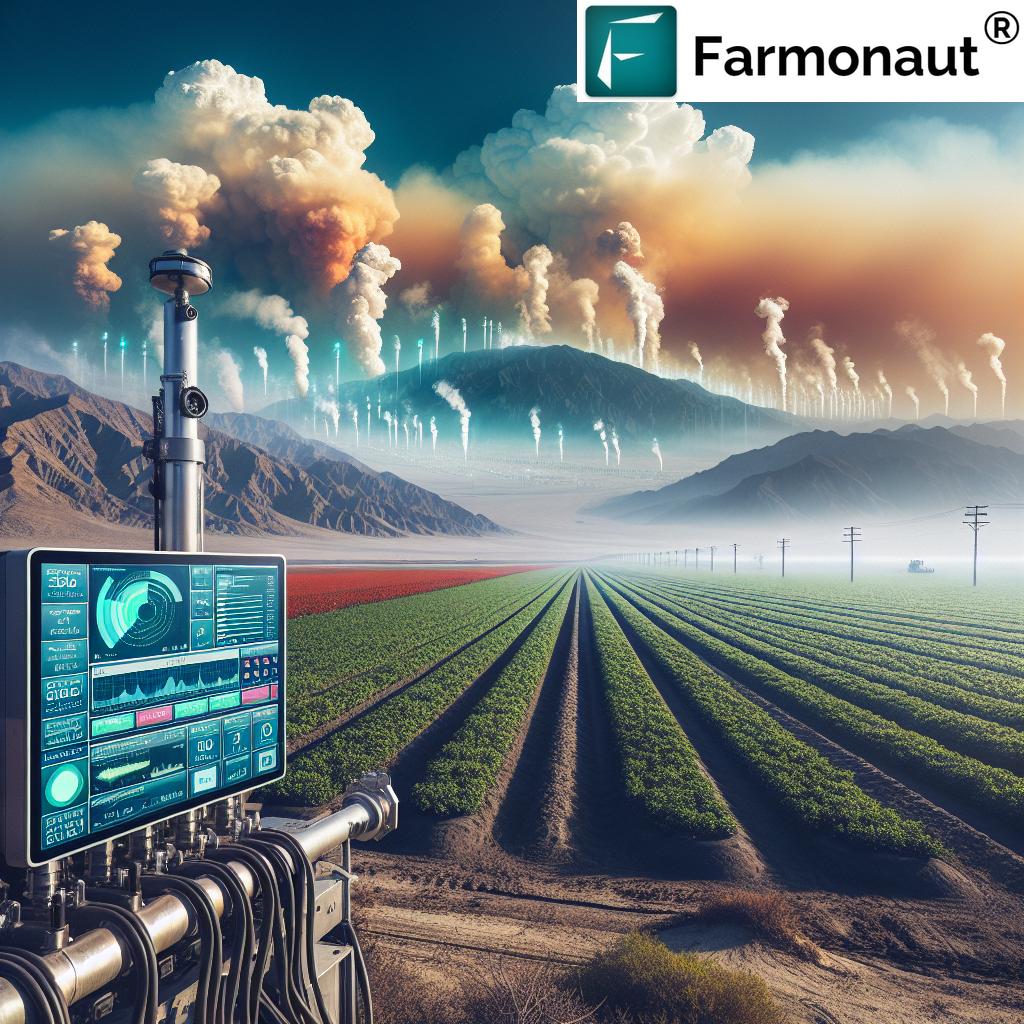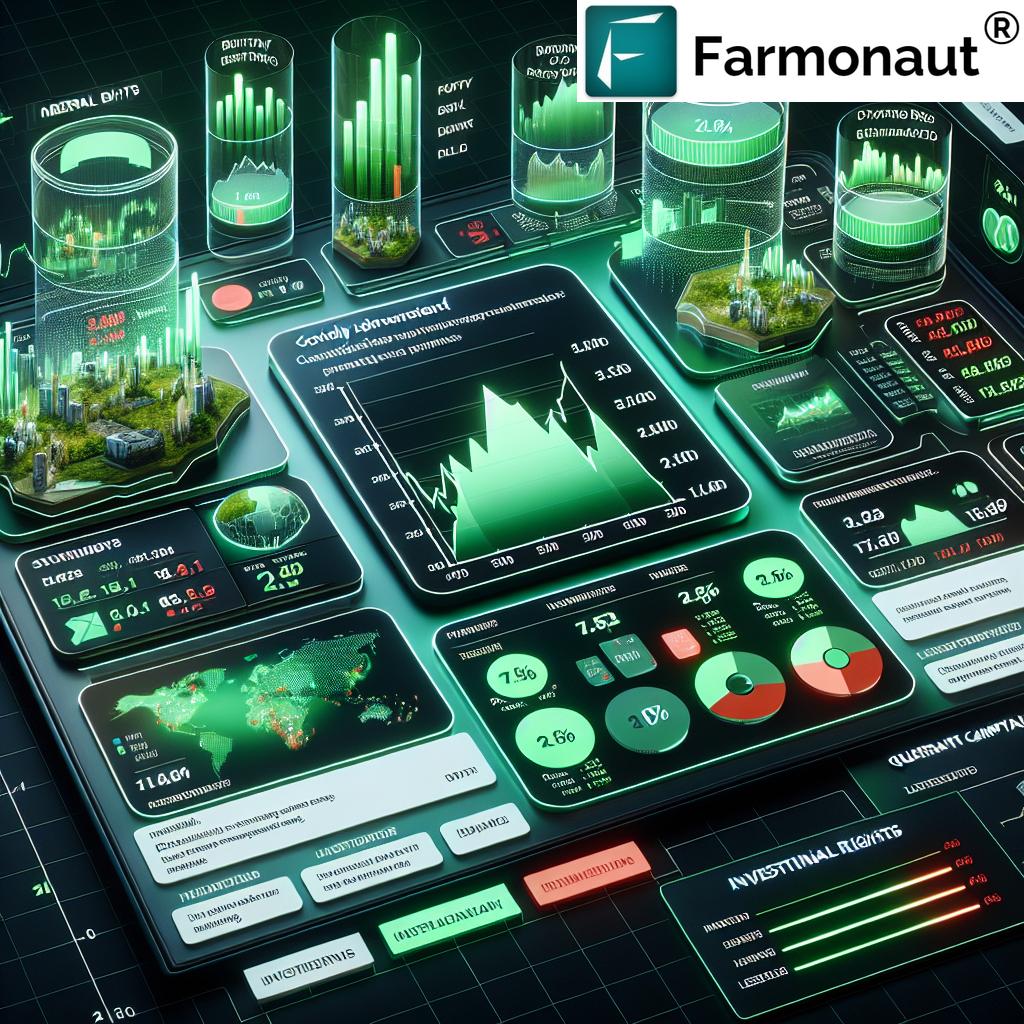Biodiesel Breakthroughs: Minnesota’s Latest Industry Trends and Environmental Benefits Revealed
“Minnesota’s biodiesel industry reduces 1.8 million metric tons of CO2 annually, equivalent to removing 380,000 cars from roads.”
Welcome to our comprehensive exploration of the latest biodiesel industry trends and soybean market updates, with a special focus on Minnesota’s thriving renewable energy sector. As we delve into this exciting field, we’ll uncover how agricultural technology innovations are reshaping the landscape of soybean production and biodiesel manufacturing. Join us as we examine the environmental benefits, policy developments, and market challenges that are driving the future of this essential industry.
The Rise of Biodiesel in Minnesota’s Agricultural Landscape
Minnesota has long been at the forefront of the biodiesel revolution, with its robust soybean industry and commitment to renewable energy. As a leader in biodiesel production, the state has consistently demonstrated the potential for agricultural byproducts to power a cleaner, more sustainable future. Let’s explore the key factors contributing to Minnesota’s success in this arena.
- Strong support from the Minnesota Soybean Research & Promotion Council
- Innovative policies promoting biodiesel adoption
- Collaboration between farmers, researchers, and industry leaders
- Investments in cutting-edge agricultural technology
These elements have combined to create a thriving ecosystem for biodiesel production and consumption in the state. As we examine the latest industry trends, it’s clear that Minnesota’s approach serves as a model for other regions looking to embrace renewable fuels.
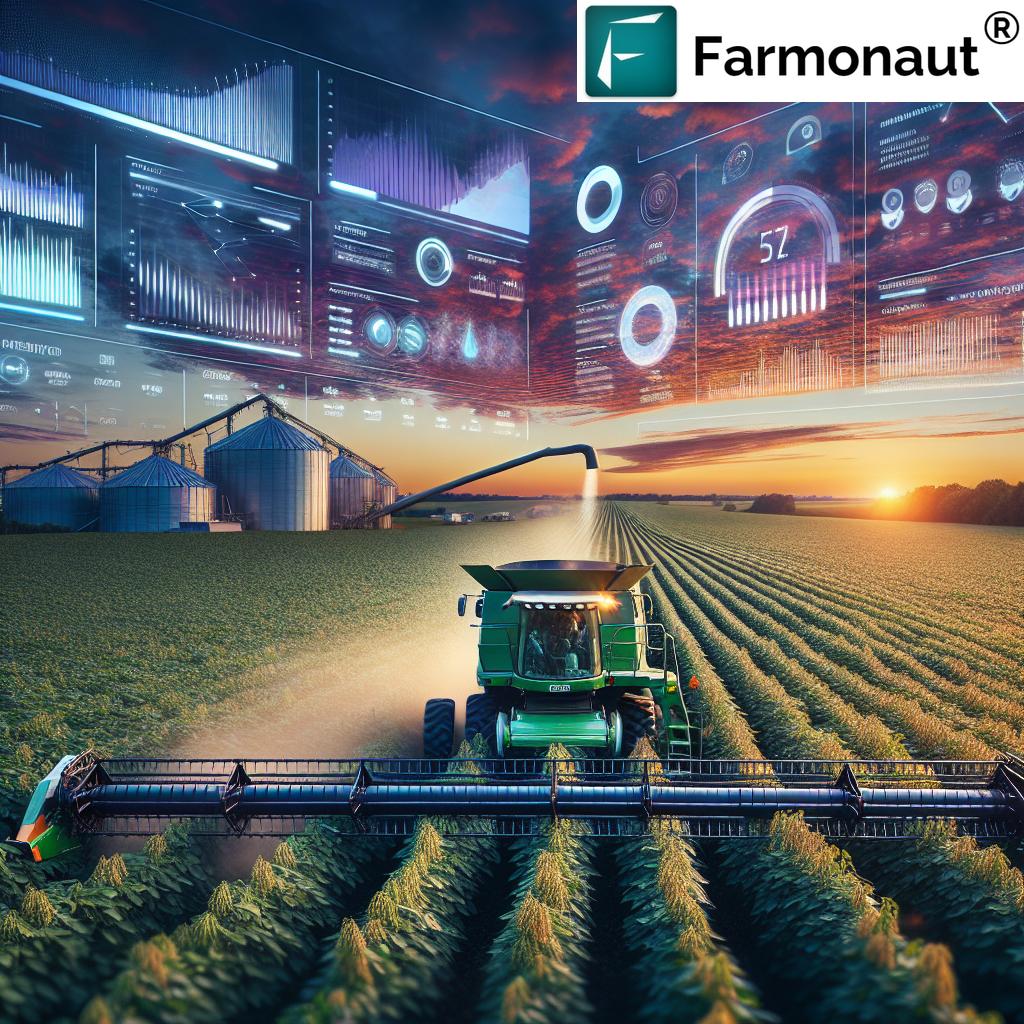
Soybean Market Updates: The Foundation of Biodiesel Success
The soybean market plays a crucial role in the biodiesel industry, and recent updates reveal exciting developments for farmers and producers alike. Let’s break down the key trends shaping the soybean market in Minnesota and beyond:
- Increased Demand: Growing interest in biodiesel has led to heightened demand for soybeans, creating new opportunities for farmers.
- Price Stability: Despite fluctuations in global commodity markets, soybean prices have remained relatively stable, providing a solid foundation for biodiesel production.
- Yield Improvements: Advancements in soybean genetics and farming practices have resulted in higher yields, boosting overall production capacity.
- Export Opportunities: Minnesota’s reputation for high-quality soybeans has opened up new export markets, further strengthening the industry.
These market trends underscore the importance of staying informed and adapting to changing conditions. For farmers looking to optimize their soybean production, tools like Farmonaut’s satellite-based crop monitoring system can provide valuable insights into crop health and yield potential.
Agricultural Technology Innovations Driving Productivity
The biodiesel industry is benefiting immensely from rapid advancements in agricultural technology. These innovations are not only improving soybean yields but also enhancing the efficiency of biodiesel production processes. Let’s explore some of the key technological breakthroughs making waves in the industry:
- Precision Agriculture: GPS-guided planting and harvesting systems are optimizing field layouts and reducing waste.
- Drone Technology: Aerial imaging and crop monitoring drones provide real-time data on plant health and soil conditions.
- AI-Powered Analytics: Machine learning algorithms are helping farmers make data-driven decisions about crop management.
- Satellite Imaging: Advanced satellite technology offers unprecedented insights into large-scale crop performance and environmental conditions.
One company at the forefront of these technological advancements is Farmonaut, which offers cutting-edge remote sensing solutions for agriculture. Their platform provides valuable data on crop health, soil moisture, and other critical metrics, enabling farmers to make informed decisions that can significantly impact soybean yields and, by extension, biodiesel production.
By leveraging these technological innovations, Minnesota’s soybean farmers are not only increasing their yields but also contributing to the overall sustainability of the biodiesel industry. The ability to monitor crops in real-time and make data-driven decisions is revolutionizing the way we approach agricultural production.
Environmental Benefits of Biodiesel: A Closer Look
“Biodiesel production in Minnesota contributes to a $1.7 billion increase in the state’s economy, supporting over 5,000 jobs.”
One of the most compelling aspects of biodiesel is its positive impact on the environment. As we strive for cleaner energy solutions, biodiesel stands out as a renewable fuel that offers significant environmental benefits. Let’s examine some of the key advantages:
- Reduced Greenhouse Gas Emissions: Biodiesel produces significantly lower carbon emissions compared to petroleum diesel, helping to combat climate change.
- Improved Air Quality: The use of biodiesel results in reduced particulate matter and other harmful emissions, leading to cleaner air in urban and rural areas.
- Biodegradability: Unlike fossil fuels, biodiesel is biodegradable, minimizing environmental impact in case of spills or leaks.
- Energy Security: By reducing dependence on fossil fuels, biodiesel enhances energy security and promotes local economic growth.
These environmental benefits are not just theoretical; they translate into tangible improvements in public health and quality of life. Recent studies have shown that increased biodiesel use in Minnesota has led to significant reductions in harmful emissions, resulting in measurable health cost savings for communities across the state.

Policy Developments Shaping the Biodiesel Landscape
The success of the biodiesel industry in Minnesota and beyond is closely tied to supportive policy frameworks. Recent policy developments have played a crucial role in driving adoption and innovation in the sector. Here are some key policy trends to watch:
- Renewable Fuel Standards: Ongoing updates to federal and state-level renewable fuel standards continue to create a stable market for biodiesel producers.
- Tax Incentives: Various tax credits and incentives are encouraging investment in biodiesel production and infrastructure.
- Blend Requirements: Many states, including Minnesota, have implemented or are considering higher biodiesel blend requirements for diesel fuel.
- Research Funding: Increased government funding for biodiesel research is accelerating technological advancements in the field.
These policy initiatives are creating a favorable environment for biodiesel production and consumption, helping to level the playing field with traditional fossil fuels. As policymakers continue to recognize the environmental and economic benefits of biodiesel, we can expect to see further supportive measures in the coming years.
Carbon Reduction Efforts: Biodiesel’s Role in Climate Change Mitigation
As the world grapples with the urgent need to reduce carbon emissions, biodiesel is emerging as a crucial tool in the fight against climate change. The industry’s carbon reduction efforts are multifaceted, encompassing every stage of the production and consumption process. Let’s explore some of the key initiatives:
- Sustainable Farming Practices: Adoption of conservation tillage and cover cropping techniques to increase soil carbon sequestration.
- Efficient Production Processes: Implementation of energy-efficient technologies in biodiesel plants to reduce overall carbon footprint.
- Waste-to-Energy Solutions: Utilization of waste products and byproducts in biodiesel production, minimizing resource waste.
- Carbon Credit Programs: Participation in carbon credit markets to incentivize further emissions reductions.
These efforts are not only contributing to global climate goals but also positioning the biodiesel industry as a leader in sustainable energy production. For farmers and producers looking to quantify and improve their carbon reduction efforts, tools like Farmonaut’s carbon footprint tracking feature can provide valuable insights and data-driven recommendations.
State-Level Initiatives: Minnesota’s Leadership in Biodiesel Adoption
Minnesota has long been a pioneer in biodiesel adoption, implementing forward-thinking policies and initiatives that have positioned the state as a national leader in renewable fuels. Let’s examine some of the key state-level initiatives driving biodiesel growth:
- B20 Mandate: Minnesota’s biodiesel blend requirement of 20% (B20) during summer months is one of the most ambitious in the nation.
- Research and Development Grants: State-funded grants supporting biodiesel research and technological innovation.
- Infrastructure Investment: Programs to assist fuel retailers in upgrading their infrastructure to handle higher biodiesel blends.
- Education and Outreach: Initiatives to educate consumers and businesses about the benefits of biodiesel use.
These state-level efforts have created a robust ecosystem for biodiesel production and consumption in Minnesota, serving as a model for other states looking to boost their renewable energy sectors. The success of these initiatives demonstrates the potential for targeted policies to drive significant change in the energy landscape.
Challenges and Opportunities in the Biodiesel Industry
While the biodiesel industry in Minnesota and beyond has made remarkable strides, it still faces several challenges. However, with these challenges come opportunities for innovation and growth. Let’s explore some of the key issues and potential solutions:
- Feedstock Diversification: Expanding beyond soybean oil to include other feedstocks can help stabilize supply and reduce dependency on a single crop.
- Cold Weather Performance: Ongoing research into improving biodiesel’s cold flow properties is essential for wider adoption in colder climates.
- Infrastructure Development: Continued investment in storage, blending, and distribution infrastructure is needed to support higher biodiesel blends.
- Market Volatility: Developing strategies to mitigate the impact of fluctuations in commodity prices and policy changes is crucial for long-term stability.
Addressing these challenges requires a collaborative effort from farmers, researchers, policymakers, and industry leaders. By leveraging advanced technologies and data-driven insights, the biodiesel industry can turn these challenges into opportunities for growth and innovation.
The Role of Agricultural Technology in Biodiesel Production
As we’ve seen throughout this exploration of biodiesel industry trends, agricultural technology plays a pivotal role in driving efficiency and sustainability. From precision farming techniques to advanced crop monitoring systems, these innovations are helping to optimize soybean production and, by extension, biodiesel manufacturing.
One company at the forefront of this technological revolution is Farmonaut. Their satellite-based farm management solutions offer farmers unprecedented insights into crop health, soil conditions, and resource management. By leveraging these tools, soybean farmers can:
- Monitor crop health in real-time, enabling early detection of issues
- Optimize irrigation and fertilizer use, reducing waste and improving yields
- Make data-driven decisions about planting and harvesting times
- Track carbon footprint and implement sustainable farming practices
For those interested in exploring how Farmonaut’s technology can benefit their farming operations, visit their web app or download the app for Android or iOS.
Biodiesel Industry Trends and Environmental Benefits: A Comprehensive Overview
To summarize the key points we’ve explored in this blog post, let’s take a look at this comprehensive table highlighting the major trends and benefits in the biodiesel industry:
| Trend/Benefit | Description | Impact |
|---|---|---|
| Soybean Market Updates | Increased demand and stable prices for soybeans | Enhanced economic opportunities for farmers |
| Agtech Innovations | Adoption of precision agriculture and satellite monitoring | Improved crop yields and resource efficiency |
| Policy Developments | Implementation of higher blend requirements and tax incentives | Accelerated growth of biodiesel industry |
| Environmental Benefits | Reduced greenhouse gas emissions and improved air quality | Estimated 1.8 million metric ton reduction in CO2 annually |
| Carbon Reduction Efforts | Sustainable farming practices and efficient production processes | Positioning biodiesel as a leader in sustainable energy |
| State-Level Initiatives | Minnesota’s B20 mandate and infrastructure investments | Creation of robust ecosystem for biodiesel production and use |
The Future of Biodiesel: Driving Sustainable Growth
As we look to the future, the biodiesel industry in Minnesota and beyond stands poised for continued growth and innovation. The convergence of supportive policies, technological advancements, and increasing environmental awareness creates a favorable climate for the expansion of biodiesel production and use.
Key areas to watch in the coming years include:
- Further advancements in soybean genetics to improve oil content and yield
- Development of new feedstocks to diversify the biodiesel supply chain
- Integration of artificial intelligence and machine learning in biodiesel production processes
- Expansion of biodiesel use in heavy-duty transportation and industrial applications
By staying at the forefront of these trends and leveraging cutting-edge agricultural technology like that offered by Farmonaut, stakeholders in the biodiesel industry can help drive sustainable growth and contribute to a cleaner, more sustainable energy future.
Embracing Technology for a Sustainable Future
As we’ve seen throughout this exploration of biodiesel industry trends, the role of technology in driving sustainability and efficiency cannot be overstated. From satellite-based crop monitoring to AI-powered analytics, these innovations are reshaping the agricultural landscape and, by extension, the biodiesel industry.
For farmers, agribusinesses, and biodiesel producers looking to stay ahead of the curve, embracing these technological solutions is crucial. Farmonaut’s comprehensive platform offers a range of tools designed to optimize agricultural operations and support sustainable farming practices. Here are some ways you can get started:
- Web App: Access Farmonaut’s powerful suite of tools through their web application.
- Mobile Apps: Download Farmonaut for Android or iOS to monitor your crops on the go.
- API Integration: For developers and businesses looking to integrate Farmonaut’s data into their own systems, check out the API and API Developer Docs.
By leveraging these advanced tools and staying informed about the latest industry trends, stakeholders in the biodiesel sector can contribute to a more sustainable and efficient future for agriculture and renewable energy.
Frequently Asked Questions
To address some common queries about biodiesel and the industry trends we’ve discussed, here’s a helpful FAQ section:
- Q: What is biodiesel, and how is it different from regular diesel?
A: Biodiesel is a renewable fuel made from vegetable oils or animal fats. Unlike petroleum diesel, it’s biodegradable and produces lower emissions when burned. - Q: How does biodiesel production impact soybean farmers?
A: Biodiesel production creates additional demand for soybeans, potentially leading to higher prices and more stable markets for farmers. - Q: What are the main environmental benefits of biodiesel?
A: Biodiesel reduces greenhouse gas emissions, improves air quality, and is biodegradable, making it less harmful to the environment than fossil fuels. - Q: How is agricultural technology improving biodiesel production?
A: Advanced technologies like satellite imaging and AI-powered analytics are helping farmers optimize soybean yields, which in turn supports more efficient biodiesel production. - Q: What role does Minnesota play in the biodiesel industry?
A: Minnesota is a leader in biodiesel production and adoption, with progressive policies like the B20 mandate and significant investments in research and infrastructure.
Conclusion: Embracing a Sustainable Future with Biodiesel
As we’ve explored throughout this comprehensive look at biodiesel industry trends and environmental benefits, it’s clear that this renewable fuel plays a crucial role in our transition to a more sustainable energy future. From the soybean fields of Minnesota to the cutting-edge laboratories developing new production technologies, the biodiesel industry is driving innovation and environmental progress.
By embracing advanced agricultural technologies, supporting progressive policies, and continuing to invest in research and development, we can ensure that biodiesel remains at the forefront of renewable energy solutions. As we move forward, the collaboration between farmers, researchers, policymakers, and technology providers like Farmonaut will be crucial in overcoming challenges and seizing new opportunities in this dynamic field.
We encourage our readers to stay informed about these exciting developments and consider how they can contribute to the growth of this important industry. Whether you’re a farmer looking to optimize your soybean production, a policymaker exploring renewable energy options, or simply an environmentally conscious consumer, there’s a role for everyone in supporting the biodiesel revolution.
Together, we can drive towards a cleaner, more sustainable future powered by the innovative spirit of the biodiesel industry.






